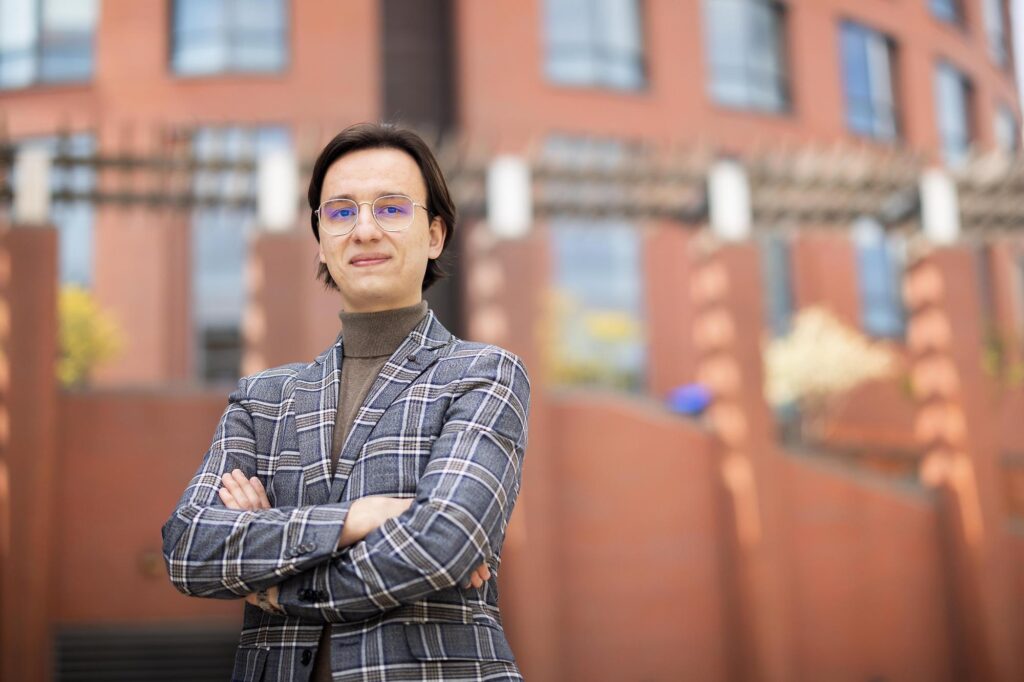
More than 65% of all nitrogen fertilizers that farmers apply in fields worldwide are not used by crops and wash into our natural ecosystems, leading to 2.6 billion tons of carbon emissions per year, according to a 2023 study from the University of Cambridge—more than global shipping and aviation combined.
Piotr Lazarek, a dual-degree fourth-year student in Penn’s Jerome Fisher Program in Management & Technology (M&T), is unflaggingly driven by the question of how farmers can reduce fertilizer application, thereby reducing both costs and the agricultural carbon footprint. He founded Nirby, a real-time farmland management platform that has been piloted by more than 200 European farmers. The startup also has built an autonomous drone system for real-time soil testing that is patent pending in more than 15 countries, including the United States.
The project has been awarded the 2025 President’s Sustainability Prize, created to support students who have ambitious proposals for post-graduation environmental projects and are committed to making a positive, lasting difference in the world. Each project receives $100,000 in implementation costs plus a $50,000 living stipend per team member.
“The President’s Sustainability Prize and the President’s Innovation Prize have been a dream of mine since freshman year,” says Lazarek, an international student from Poland. “I’m grateful for all the support, mentorship, and opportunity that Penn has given me.”
His mentor, Jeffrey Babin, a practice professor in mechanical engineering and applied science in the School of Engineering and Applied Science, will continue to advise Lazarek as he refines his business model and expands into the U.S. agricultural industry. Babin also served as Lazarek’s advisor for the Venture Lab’s VIP-X Program—a three-month accelerator program—and supported him in the 2024 Venture Lab Startup Challenge, which Lazarek won.
“Piotr and Nirby have created an innovative and easy-to-adopt farmland management system,” Babin says. “The integration of licensed government satellite data, proprietary real-time soil testing, and data analytics provides farmers with automated fertilizer optimization to save money and avoid the environmental impact of fertilizer run-off.”
